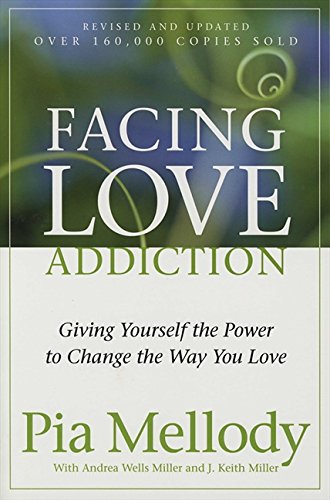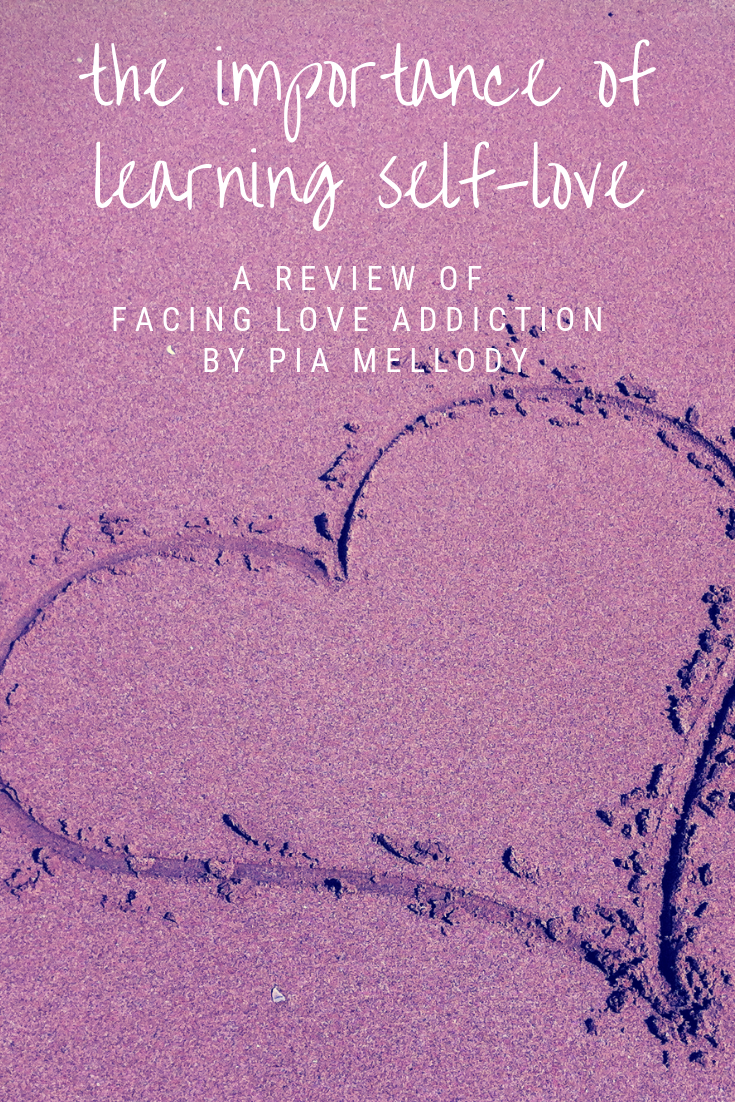In 1992, Pia Mellody wrote her book that reached out to those who felt compulsively drawn into toxic or painful relationships: love addicts. In Facing Love Addiction*, Mellody defines love addiction as an unhealthy relationship which involves obsessive time, attention, and value given to another person. It includes unrealistic expectations on the other person to provide unconditional love, and a corresponding lack of self-care. Love addiction involves a distortion of intimacy that involves obsessive desire for closeness at the expense of healthy relationships.
Who is this book for?
As the title suggests, this book is primarily a resource for self-defined love addicts or individuals with codependent tendencies who are wondering if they may be love addicted. At the same time, she addresses the partners with whom love addicts tend to pair: love avoidants.
Love avoidants are the object of the codependent. They are typically drawn to the intensity of the love addict because it is similar to relationships with parents or family in childhood. When this intensity becomes overwhelming, the love addict creates intensity outside the relationship with addictions.
This book includes journaling pages and exercises in the final chapters which provide ways for both love addicts and love avoidants to examine their compulsive patterns and identify the origins of these maladaptive coping strategies in relationships.
What This Book Taught Me
Love addiction and codependency are related, but different.
Mellody describes codependency as a pattern of unhealthy relationships. Codependents make another person their higher power, leading to power struggles, resentment, addictions, and/or difficulties with intimacy. Individuals who struggle with codependency have difficulty loving themselves, using adequate self-protection, understanding their identity, practicing self-care and moderating themselves.
Codependency is certainly an element of love addiction, but not all people who are codependent are love addicts. For the love addict, the markers of codependency that are most notable are low self-esteem and poor self-care habits.
Love avoidants can have toxic relationships too.
Love avoidants are highly self-protective in relationships, often due to a family history of enmeshment. The love avoidant may have had to care for an emotional parent or was taken advantage of by a family member. In their adult lives, they often seek to maintain control over relationships and can do so by threatening to leave the love addict.
Love avoidants also struggle to meet their own needs. They were typically expected to deny their own needs in service of one or both parents, and therefore missed the opportunity to learn how to recognize and care for their own emotions and needs.
The patterns of love addiction or love avoidance begin in the past.
Present-day relationships are not the cause of love addiction or love avoidance. Problems in relationships are usually a symptom of a pattern begun in earlier life. Examining past codependent relationships or experiences of abandonment can shed light how you developed one of these types of relating.
Once you become aware of the ways these experiences have shaped you, it is important to learn to reparent yourself. This is a tool I often encourage with clients who have experienced trauma in their family-of-origin. Reparenting yourself involves caring for yourself in the ways you may have missed in childhood. This can involve creating appropriate boundaries for yourself to increase safety, or to increase our self-care behaviors as you become aware of the unhelpful expectation that your partner will meet all of your needs.
Healthy people seem less attractive without the work of recovery.
If you struggle with love addiction, you may be baffled as to why you continue engaging in relationship after relationship that are toxic and destructive. You wonder why you can’t find a partner who doesn’t pull you into this addictive cycle. In relationships, you tend to be attracted to what is familiar. Even if it is unhealthy, you know what to expect.
These relationships can serve as an attempt to resolve childhood wounds in the present day. When you have lived through a traumatic experience in childhood, you may repeat that experience in an attempt to resolve the pain that you once felt, or to try to rewrite the story to create a new outcome.
Entering into recovery breaks these patterns through building healthy relationships that involve self-care, individuation, and effective and healthy boundaries. This work needs to be done so that the intensity of the addictive relationships becomes less appealing.
You don’t need to be in a romantic relationship to start working on the symptoms of codependency or love addiction.
While love addiction and codependency have the most drastic effects in romantic relationships, you can begin working on the skills you’ll need for healthy relationships even if you aren’t partnered up. Begin by fostering healthy friendships with individuals you meet in your 12 step programs or elsewhere. Learning to view others with realistic expectations and take care of yourself can significantly impact your awareness of these areas when entering a romantic relationship. Learn from these relationships by examining your expectations about how others will relate to you. Use that awareness as an opportunity shift to a more realistic or helpful expectation.



